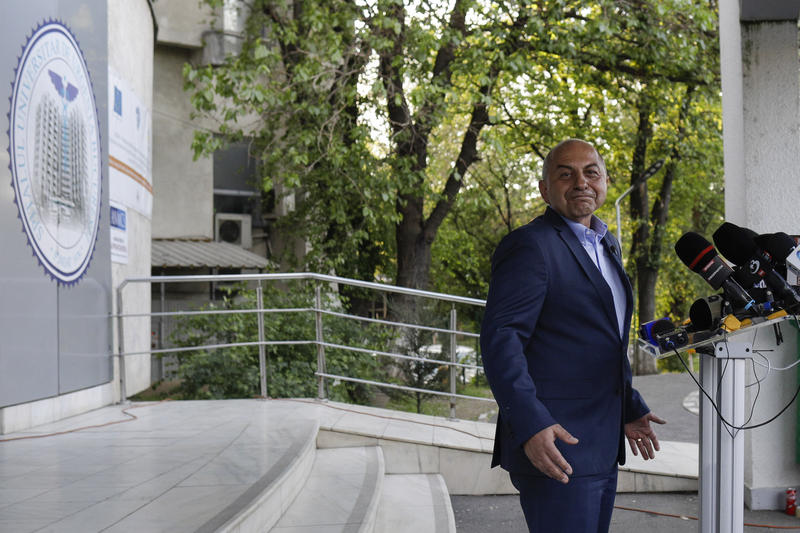Romanian newspapers on Monday take stand about the assassination of a Russian journalist known for her criticism towards President Putin. Separately, they re-open the talk about the victims of communism, about how current efforts in Bucharest to deal with the past are seen in Europe and what effects the very same communist past has on the population.
They also report a new investigation to be launched in the secret CIA prisons scandal and the failure of “European capital Sibiu” at the Frankfurt Book Fair.
Most Romanian newspapers today report the world reaction to the killing of Russian journalist Anna Politkovskaya, shot to death in Moscow this weekend. While most newspapers stick to international press agency reports, Gandul publishes a protest of the Romanian Press Club-CRP.
It warns that “while communism and Nazism have disappeared in Europe, there still are political leaders haunted by totalitarian reflexes and journalists are the handiest victims to such behavior” and appeals to solidarity among all journalists before such attacks.
CRP, an organization seen as a sort of employers’ union for Romanian media, is headed by Gandul head Cristian Tudor Popescu.
Meanwhile, Cotidianul focuses on Romania’s own communist past and publishes a first part of a series aimed at delivering President Traian Basescu the information needed to officially condemn communism.
The Romanian head of state had said systematic and exhaustive proof was needed to be compiled in order to allow him condemn communism - and that is what the newspaper tries to deliver.
The newspaper starts with an evaluation of communist victims from among the political elite and reports a “minimum figure” of 836 political leaders who were exterminated under the communist regime. Extending the report for the whole political class, it shows some 1,800 people became victims of communism in this sector alone.
Gandul turns its eye on ongoing revelations about people who collaborated with the political police of the communist regime - a campaign known as “dosariada” - and quotes a European Parliament report that considers them a maneuver to undermine reformers in Romania.
The report, the newspaper says, is considerably tougher than the European Commission report on Romania last month as it also criticizes the Liberal Party, a senior member of the government, for being controlled by “oligarchs” and the Government for being rotten by internal fights.
Cotidianul quotes another report according to which post-communist transition has increased the number of citizens in East European countries who are prone to psychological affections.
It says transition has “mentally troubled” Romanians, as one in three of them are disturbed by unrealistic expectations, incapacity to adapt and the lack of recognition for their value.
Jurnalul National is more pragmatic and focuses on current politics: while officials Brussels are waiting for a Romanian nomination for a seat as European Commissioner, talks in this regard are mired in political disputes in Bucharest.
According to the newspaper - known for its criticism of the Romanian head of state - President Basescu claims to have a say in this story despite top EC officials said it was entirely the duty of prime minister Calin Popescu Tariceanu.
Elsewhere in the papers, the same Jurnalul National reports that Barry George, a British citizens who’s being investigated by British authorities for his role in a controversial deal in which two second-hand frigates were sold to Romania, suffered a heart attack in Bucharest yesterday.
He was saved in an urgent medical intervention and is recovering in a Bucharest hospital.
Gandul announces that the European Parliament will send a delegation to Bucharest later this month to check again the allegations that Romania hosted secret CIA prisons, in a revived international scandal fueled by US President George W. Bush.
The same newspaper reports that only 25 people attended a presentation of the “Sibiu 2007 - the European Cultural Capital” program at the Frankfurt Book Fair last week.
Romania has long taken pride of having its city of Sibiu as European cultural capital for one year next year, but its representatives failed to collect any attention from the audience at the hugely populated Frankfurt event.



















